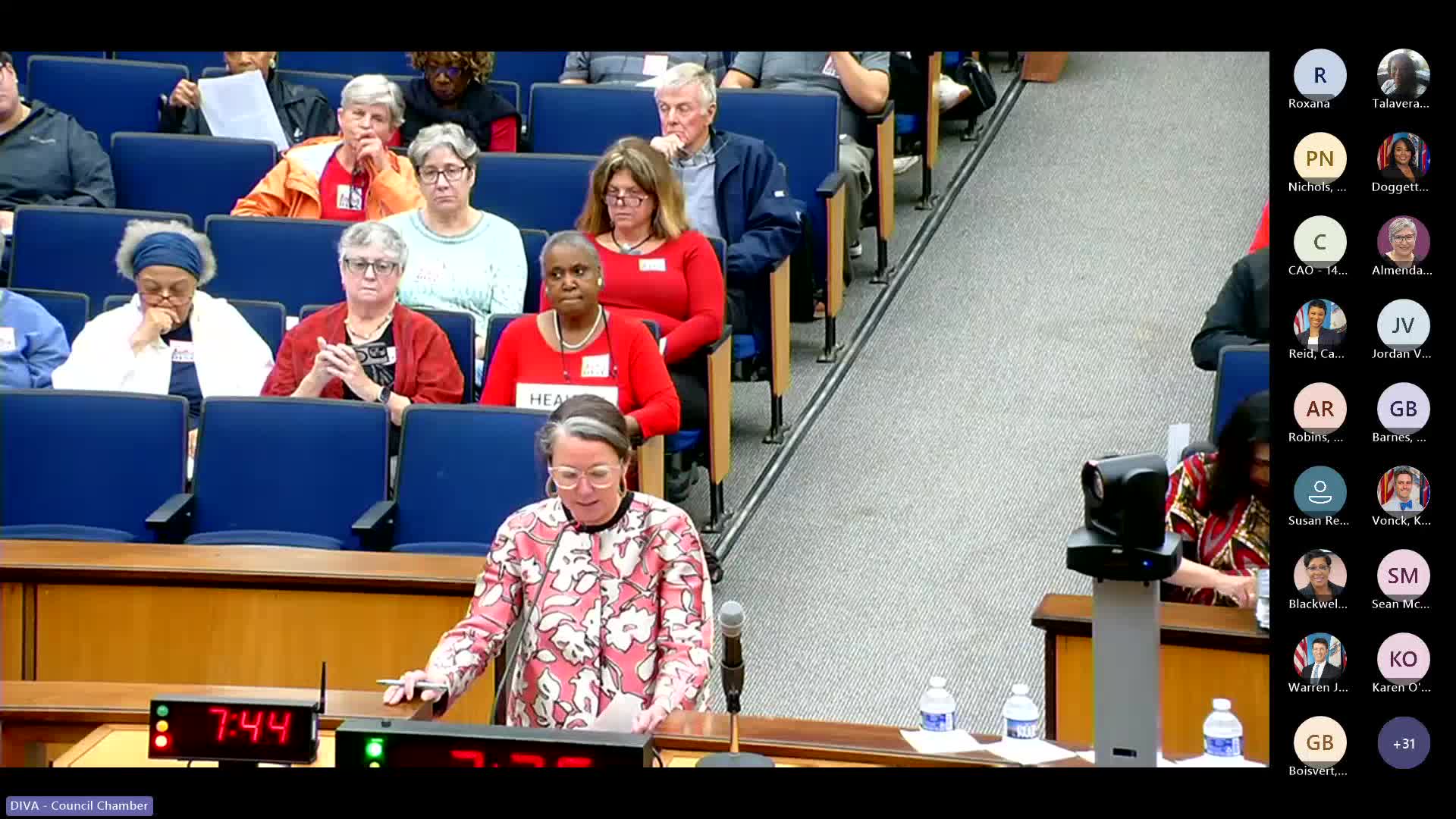City Council approves special use permit for community-driven development project
May 14, 2025 | Richmond City (Independent City), Virginia
This article was created by AI summarizing key points discussed. AI makes mistakes, so for full details and context, please refer to the video of the full meeting. Please report any errors so we can fix them. Report an error »

In the heart of Richmond City Hall, a vibrant discussion unfolded during the recent City Council meeting, where community voices and development plans converged. The atmosphere buzzed with anticipation as council members and residents gathered to deliberate on a proposed project that promises to reshape a key commercial corridor in the West End.
The project, which seeks a special use permit (SUP), has garnered significant support from both city staff and the planning commission. Advocates for the development emphasized its potential to enhance economic growth without compromising the neighborhood's character. "This project provides additional economic development. It does not interfere with light and air," stated a representative from the ownership group, highlighting the careful planning that has gone into the proposal.
Community engagement has been a cornerstone of this initiative. Tyler Curry, a member of the ownership group, shared how the project evolved through multiple meetings with residents. "We heard them, wanted to listen to them, and made changes based on that feedback," he noted. One notable adjustment includes allowing public parking after hours and on weekends, a move aimed at addressing local concerns.
Support for the project was palpable among residents who spoke during the public hearing. Brian Luce, a First District resident, expressed his enthusiasm, stating, "The developers actually listened to the people that attended that meeting." Jalen Randolph, who grew up in the area, echoed this sentiment, asserting that the development adds "sensible growth to a historic yet growing area."
However, the discussions also touched on broader issues of displacement and community preservation. Councilman Bridal acknowledged the pressures faced by nearby neighborhoods, particularly the historic Westwood community. He emphasized the importance of balancing development with the need to protect vulnerable residents from displacement. "We need to do everything that we can to ensure that we are not displacing people in the city," he remarked, reinforcing the council's commitment to addressing these critical concerns.
As the council moved to a vote, the atmosphere shifted from discussion to decision-making. The proposal was ultimately adopted, marking a significant step forward for the project and the community it aims to serve. With the council's approval, Richmond City is poised to embrace a new chapter of development that prioritizes both economic growth and community engagement, setting a precedent for future projects in the area.
The project, which seeks a special use permit (SUP), has garnered significant support from both city staff and the planning commission. Advocates for the development emphasized its potential to enhance economic growth without compromising the neighborhood's character. "This project provides additional economic development. It does not interfere with light and air," stated a representative from the ownership group, highlighting the careful planning that has gone into the proposal.
Community engagement has been a cornerstone of this initiative. Tyler Curry, a member of the ownership group, shared how the project evolved through multiple meetings with residents. "We heard them, wanted to listen to them, and made changes based on that feedback," he noted. One notable adjustment includes allowing public parking after hours and on weekends, a move aimed at addressing local concerns.
Support for the project was palpable among residents who spoke during the public hearing. Brian Luce, a First District resident, expressed his enthusiasm, stating, "The developers actually listened to the people that attended that meeting." Jalen Randolph, who grew up in the area, echoed this sentiment, asserting that the development adds "sensible growth to a historic yet growing area."
However, the discussions also touched on broader issues of displacement and community preservation. Councilman Bridal acknowledged the pressures faced by nearby neighborhoods, particularly the historic Westwood community. He emphasized the importance of balancing development with the need to protect vulnerable residents from displacement. "We need to do everything that we can to ensure that we are not displacing people in the city," he remarked, reinforcing the council's commitment to addressing these critical concerns.
As the council moved to a vote, the atmosphere shifted from discussion to decision-making. The proposal was ultimately adopted, marking a significant step forward for the project and the community it aims to serve. With the council's approval, Richmond City is poised to embrace a new chapter of development that prioritizes both economic growth and community engagement, setting a precedent for future projects in the area.
View full meeting
This article is based on a recent meeting—watch the full video and explore the complete transcript for deeper insights into the discussion.
View full meeting
